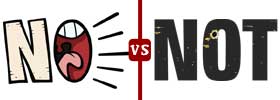Difference between FHA and Conventional Loans
Key Difference: There are two main types of mortgage loans available for a buyer: Conventional Loans and FHA Loans. Conventional Loans are loans that are the traditional loans that are available from the traditional lenders such as a mortgage company or a bank. FHA loans are a type of loans that are insured by the Federal Housing Administration (FHA), which is a government agency.

When looking out to buy a new home, a buyer will generally need to look out for a mortgage loan; that is unless he is a millionaire, and sometimes even them. There are two main types of mortgage loans available for a buyer: Conventional Loans and FHA Loans.
Conventional Loans are loans that are the traditional loans that are available from the traditional lenders such as a mortgage company or a bank. They can also be available from private entities such as credit unions, private lenders or thrifts. Loans made by the federally regulated home lenders Fannie Mae and Freddie Mac are also considered to be conventional loans.
There are two main types of conventional mortgage loans: conforming and non-conforming. A conforming loan is that conforms to the loan limit, which is usually about $417,000 or less for single-family homes. This can be as high as $729,750 in the many high-cost areas of the country. Loans that exceed the conforming loan limit are known as non-conforming loans.
Another type of mortgage loan available in the market is FHA loans. FHA loans are a type of loans that are insured by the Federal Housing Administration (FHA), which is a government agency. The FHA does not lend money as part of the FHA loans. FHA loans must be acquired from an FHA-approved lender. This is because the FHA is not a lender, but rather an insurance fund. It insured the loan, which means that it provides government backing in the event that the borrower defaults on the loan. Due to this not all FHA-approved lenders offer the same interest rate and costs, not even on the same FHA loan.
 The benefit of FHA loans is that homeowners who would otherwise be denied a conventional mortgage, mainly due to insufficient financial backing or low credit rating, can still be applicable for FHA loans. FHA loans are generally easier to qualify for, which makes them increasingly popular with first-time homebuyers. However, they do have more bureaucratic hurdles that the borrower or homeowner must jump through.
The benefit of FHA loans is that homeowners who would otherwise be denied a conventional mortgage, mainly due to insufficient financial backing or low credit rating, can still be applicable for FHA loans. FHA loans are generally easier to qualify for, which makes them increasingly popular with first-time homebuyers. However, they do have more bureaucratic hurdles that the borrower or homeowner must jump through.
Both, conventional loans and FHA loans can have a fixed-rate or an adjustable-rate interest. Depending on the type of loan and the lender, conventional loans can require up to 20% down payment; whereas, FHA loans generally require a minimum of 3.5% down payment. In fact, this down payment can be paid by either the borrower or as a gift by one of his family members.
Comparison between FHA and Conventional Loans:
|
|
FHA Loans |
Conventional Loans |
|
Description |
FHA loans are mortgage loans insured by the Federal Housing Administration, a United States government agency. |
Mortgage loans as available from any traditional lender, such as a mortgage company or a bank. |
|
Backed by |
Insured by Federal Housing Administration, a Federal Agency |
Backed by private entities such as banks, credit unions, private lenders, thrifts, or the federally regulated home lenders Fannie Mae and Freddie Mac. |
|
Types |
Fixed-rate or adjustable-rate mortgages |
Conforming or nonconforming |
|
Interest rates |
Fixed or adjustable interest rates with fixed more common |
Fixed or adjustable interest rates |
|
Term |
15 or 30 years |
Anywhere between 15 and 30 years |
|
Cost |
Upfront mortgage insurance premium, or MIP, ongoing annual premiums, origination fees, down payments, mortgage insurance, points and appraisal fees can be paid by self or as a gift by family members. |
Origination fees, down payments, mortgage insurance, points and appraisal fees |
|
Bureaucracy |
More bureaucratic hurdles
|
Fewer bureaucratic hurdles
|
|
Processing Time |
Longer time to process
|
Lesser time to process
|
|
Down payments |
Lower down payments. Minimum down payment is 3.5% |
Higher down payments. Lenders can require up to 20% down payment. |
|
Credit Rating |
Between excellent and subprime can qualify |
Requires excellent credit to qualify for the best interest rates |
|
Ideal for |
Borrowers with blemished or less-than-perfect credit, borrowers with moderate debt-to-income ratios and for those who don't have a lot of money for a down payment. |
Borrowers with excellent credit who can afford a down payment of 5 percent or more. |
Image Courtesy: jamielarkin.com, blog.thelendersnetwork.com









Add new comment